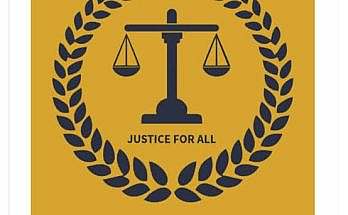I thank the organisers of this colloquium for making this one of the topics to be discussed today. AdaezeAnah who has always insisted on having a public discourse on whether the extant provisions of the Rules of Professional Conduct for Legal Practitioners, 2007 which regulate advertising or promotion in connection with practice of the law meet the needs of legal practitioners in today’s, Nigeria. I am not therefore surprised the topic made it into the list for this year’s colloquium. Thecolloquium in honour C.O Anah, SAN is therefore a befitting occasion to discuss the subject in the context of this year’s theme “Practice Management; The Heartbeat of Every Impactful Legal Career”.
I find this topic very interesting as it affords us an opportunity to examine our rules of professional conduct to interrogate its provisions as it concerns what legal practitioners are permitted and prohibited to do in order to attract business. In a paper I presented at the Law Week on NBA Awka, I noted that the negative effect of current economic recession is being felt in all spheres of our economic life.
Many businesses are laying off workers, there is default by individuals, businesses and state governments in paying salaries, governments are borrowing to fund budgets, productive and manufacturing sector is recording losses, businesses are closing, foreign airlines are exiting the country, there is rise in the cost of goods and there is a steady decline in the value of the Naira. The current economic realities make it difficult for legal professionals (particularly those in private practice) to pretend that they do not necessarily have to re-examine the way run their business. It used to be that lawyers simply sat in their offices and clients sought them out. Their reputation, social acquaintanceship/connections and word of mouth introduction, were the usual acceptable ways of ‘advertising and marketing’ them to potential clients. Indeed., the traditional view was that a lawyer should not be permitted to actively publicize or promote his business or use advertising to attract business.
Their reputation, social acquaintanceship/connections and word of mouth introduction, were the usual acceptable ways of ‘advertising and marketing’ them to potential clients. Indeed., the traditional view was that a lawyer should not be permitted to actively publicize or promote his business or use advertising to attract business.
This view was captured by Professor Thomas Morgan when he noted that: “The organized bar traditionally took the position that a lawyer was not permitted to actively publicize his services. In effect, it was presumed that every lawyer had an established clientele, or that a lawyer’s reputation for good work would inevitably lead others to seek out the lawyer’s services. Under this approach, direct publicity for lawyers was strictly controlled”. Advancement of technology, changing nature of legal practice, globalization etc have made legal practice totally different from what it used to be. The need to increase the market share of legal market means that lawyers may no longer depend on the traditional view which frowned at non-advertisement of legal services.
An opportunity like this therefore always a good time not only to look at the challenges of running our law practice or the business of law but also to ask ourselves whether our practice of law is done with a right business mind-set. It also affords us an opportunity to use ethical parameters to review the different ways lawyers seek to attract legal businesses. We can only do this, if we understand that the practice of law is also a business but must not be carried on like a trade or business in the way businessmen. I must remind us that a lawyer in practice is engaged in business, therefore law practice is indeed a business.
Anyone who doubts that a lawyer in practice is a person engaged in business law should read the case of Hairat Balogun v. N.B.N (1978) 3 S.C. 11; (1978) All N.L.R 63. In this case, the court noted that “Business is a wider term, and not synonymous with, trade; and means practically anything which is an occupation as distinguished from pleasure”. Continuing the court per Idigbe, JSC, held that: “The learned trial judge in the court below rightly, in our view, declined the invitation of learned counsel for the Appellant that he should regard a solicitor as being in the same category as “a trader”; we, however, take the view that a solicitor in practice is “in business” and for that matter “in commercial business” but that is not to say that he is “a trader”.
“Business is a wider term, and not synonymous with, trade; and means practically anything which is an occupation as distinguished from pleasure. Profit or the intention to make profit is not an essential part of the legal definition of a trade or business; and payment of a profit does not constitute a trade or business that which would otherwise not be such”. (See 38 Halsbury’s Laws of England. Lord Simonds Ed. or 3rd Ed. P-10 ,11.  Robert W. Denney, writing in the article; “Managing the firm like a business’, stated that “About 10 years ago, in one of our firm’s legal communiqués, I wrote: The practice of law is a profession, but a law firm is a business and must be managed like a business.
Robert W. Denney, writing in the article; “Managing the firm like a business’, stated that “About 10 years ago, in one of our firm’s legal communiqués, I wrote: The practice of law is a profession, but a law firm is a business and must be managed like a business.
That statement produced indignant replies from quite a few lawyers saying emphatically that a law firm is not a business and castigating me for saying it is”. I noted earlier that we should not be emotive about this issue. Even though we belong to a noble and learned profession, we all run businesses. Yes, you heard correctly, we run a business. In fact, Robert W. Denney concluded by admitting that “Today, however, most lawyers realize that a law firm is a business. So the question for many firms—perhaps including your own—is what structure is most effective for management in a businesslike manner?”
Law practice involves two notions: the notion of law as a profession and the practice of law which has at its root the running of a law firm. We cannot remain touchy about discussing advertisement and marketing of our legal services in order to attract business.  We must confront our worst fears so we can chart a proper course for practitioners. The issue always elicits an emotive reaction from lawyers and judges alike. Lawyers bristle at the suggestion that law practice, can by any stretch of imagination be likened to or compared with a business. Such lawyers argue that since we are a learned profession, we are not running businesses, nor should we.
We must confront our worst fears so we can chart a proper course for practitioners. The issue always elicits an emotive reaction from lawyers and judges alike. Lawyers bristle at the suggestion that law practice, can by any stretch of imagination be likened to or compared with a business. Such lawyers argue that since we are a learned profession, we are not running businesses, nor should we.
It is worrisome that lawyers still make this argument even though like other businesses they pay salaries, pay rent, pay for software for their law firms and incur other costs like other businesses.
I will reiterate that while law practice is a business, legal practitioners are not business people. Thus, practitioners involved in legal practice are engaged in business but are not businessmen. John Balestriere’s affirmed this much when he noted that “Law firm managers have responsibilities that businesspeople have that have nothing specifically to do with serving clients and doing justice. This absolutely includes the obligation to manage finances well. Without enough money coming in, staff cannot get paid, Westlaw subscriptions get canceled, and there’s no toner in the printer……..But while being mindful of this reality—perhaps never once considered in the halls of law schools in New Haven or Cambridge or Morningside Heights—we also do need to keep something else, at least as important, in mind. We are not just businesspeople. We are lawyers. We are part of a profession that has a special obligation to our clients, to the courts, and to justice. Businesspeople do not have that obligation. We do”.  In whatever way we carry on the practice of law, we must look at things the right way. We should always endeavour to do justice and serve clients when they come to us. Sure, we deserve to be well paid for the services we render to them as well as the value we obtain for them when we help them resolve such dispute or minister to their needs. “But if we can serve them well, we are satisfying our own professional calling. And—simply being blunt—most of those that have problems now that require a lawyer will have problems later that require a lawyer. Serve the client well and he very well may be back when you cannot resolve the dispute quickly. Law firm managers must be smart businesspeople. But we always need to keep in mind that we are more than that. We’re lawyers, too, and need to act like lawyers every day”.
In whatever way we carry on the practice of law, we must look at things the right way. We should always endeavour to do justice and serve clients when they come to us. Sure, we deserve to be well paid for the services we render to them as well as the value we obtain for them when we help them resolve such dispute or minister to their needs. “But if we can serve them well, we are satisfying our own professional calling. And—simply being blunt—most of those that have problems now that require a lawyer will have problems later that require a lawyer. Serve the client well and he very well may be back when you cannot resolve the dispute quickly. Law firm managers must be smart businesspeople. But we always need to keep in mind that we are more than that. We’re lawyers, too, and need to act like lawyers every day”.
To Advertise or Not to Advertise.
Legal Advertising can be defined as any advertising a legal practitioner (lawyer) procures or places in publications, outdoor installations, radio, television, social media, internet, or any other written or recorded media.
Those who oppose advertising believe that purposeful competition between lawyers for clients is a great evil of the profession. They reason that legal profession must concentrate on public service rather than profits.
They argue that when lawyers advertise they provide the public with a misleading picture of legal services, suggesting that legal issues can be solved as easily as a sink can be fixed. Because the law is complex, the consumer cannot evaluate the quality of the offered services.
These opponents further argue the prohibition of legal advertising will maintain the law as a profession lawyers have pledged to serve the public interest.
These opponents insist that advertising demeans the legal profession because promoting legal services through print or electronic media tells the public that lawyers are only out to make money.
These opponents of legal advertising argue that this historic role must be preserved in the face of advertising that is sometimes undignified and demeaning to the profession.
It is noteworthy that some who argue against legal advertising see nothing wrong in lawyers putting up signboards, publishing in a reputable law list or Law Directory, a brief biographical or informative data of himself, including all or any of the following matters his name or names of his professional association; his address, telephone number, telex number, e-mail address, etc ; the school, colleges, or other institutions attended with dates of graduation, degree and other educational or academic qualifications or distinctions; date and place of birth and admission to practice law.
Some see nothing wrong in law firm having a website, Linked, Facebook or other social media account where they may post things concerning their legal practice. They only quarrel with the forms of advertising that mimic businessmen.
They worry about the type of advertisement that sensationalise and glamourize legal services in a bid to attract legal services to the advertisers. They worry that such advertisements demean the legal profession and portray the legal profession as no different from a mere trade or business.
These proponents of legal advertisement contend that since, the need by lawyers to make money has always been acknowledged, it is hypocritical for comfortable lawyers to lament the introduction of competition which advertisement will bring about in the profession.
These proponents point out that bar leaders have generally come from large corporate law firms, which have no need to advertise for clients but compete for profitable corporate retainers. These firms, they contend, have not provided public service but have concentrated on making profits. If corporate firms had helped with the unmet legal needs of society, perhaps advertising would not be necessary.
In support advertising by lawyers, it is claimed that professionalism, public service, and commercialism are not mutually exclusive. It is contended that lawyers can provide the public with a service by advertising. Much of legal advertising they argue is educational, instructing consumers of legal services on what their legal rights are and where and how they may find, contact and consult a lawyer for their legal needs.
In their view, advertising reaches people who would not otherwise know what to do or where to go with a legal problem. The proponents equally contend that since profitability is the ultimate goal of any successful business, and how to earn that profit takes some planning, then advertising is imperative in ensuring profitability. I will mention a few more arguments by the supporters of legal advertising:
a. The quality of legal services has not suffered as result of advertising but has rather improved as lawyers improve the quality of their services so as to attract more clients and businesses.
b. Placing the legal profession in the open market is not demeaning but democratic.
c. A practice may not achieve excellence or run efficiently if it is not run like a business.
d. A robust legal practice must generate enough work to keep the lawyers/law firm and others busy.
e. One can be a consummate lawyer and a consummate entrepreneur.
f. Legal advertising breaks down the elitist notion that lawyers are in some way superior to others in the workforce.
g. Competition helps to drive down the costs of legal services rather than increase them.
h. Advertising does cost money, but innovative law firms have learned how to use forms, computers, and the services of legal assistants to reduce operating costs.
i. As with any business, if consumers are unhappy with the service they receive, they will not return.
j. Advertisements provide consumers with information about legal services. Those who argue that legal advertising would make information flow better to consumers of legal services and also make legal services more accessible to the general public and improve the overall administration of justice, thank an Arizona attorney named John Bates. Bates provided routine legal services to moderate income clients – uncontested divorces, name changes, small personal bankruptcies and the like. He set his prices low and depended on a substantial volume of clients.
Those who argue that legal advertising would make information flow better to consumers of legal services and also make legal services more accessible to the general public and improve the overall administration of justice, thank an Arizona attorney named John Bates. Bates provided routine legal services to moderate income clients – uncontested divorces, name changes, small personal bankruptcies and the like. He set his prices low and depended on a substantial volume of clients.
A time came when he was having trouble reaching that requisite number of clients. In February 1976, he purchased a simple ad in the local newspaper offering his list of services and his fees. Believe it or not, all hell broke loose.
Arizona’s State Bar had a rule, based on an ABA (American Bar Association) model rule that was in use in most other states, stating “A lawyer shall not publicize himself or his firm through newspaper or magazine advertisements, radio or television announcements, display advertisements in the city or telephone directories, etc.” The Arizona State Bar brought Bates up on charges and recommended that he be suspended from the practice of law for six months”.
Bates lost at the bar disciplinary stage, and he took his case to the Arizona Supreme Court, where he lost again. The U.S. Supreme Court agreed to hear his appeal and considered two possible grounds: One, did the ban on advertising violate the Sherman Antitrust Act and, two, did it violate the First Amendment on free speech grounds. In holding that lawyer advertising was commercial speech entitled to protection under the First Amendment (incorporated against the States through the Fourteenth Amendment), the Court upset the tradition against advertising by lawyers, rejecting it as an antiquated rule of etiquette. The Court emphasized the benefits of the information that flows to consumers through advertising, postulating that lawyer advertising would make legal services more accessible to the general public and improve the overall administration of justice.
Can a Lawyer Advertise?
The traditional view justifying prohibition of legal advertising was rejected by the US Supreme Court in the Bates’ case “as a historical anachronism, which created higher barriers to entry into the legal profession and functioned to “perpetuate the market position of established attorneys”. According to the Court commercial speech serves significant societal interests in that it informs the public of the availability, nature, and prices of products and services, allowing them to act rationally in a free enterprise system.
The listener’s interest in receiving information regarding potential commercial transactions is “substantial.” In fact, “the consumer’s concern for the free flow of commercial speech often may be far keener than his concern for urgent political dialogue.”
The Court characterized Arizona’s ban on lawyer advertising as serving to “inhibit the free flow of information and keep the public in ignorance.” It emphasized the advertisement Bates and O’Steen published was the most basic one possible – listing various services, the prices charged, and an address and telephone number.
In answering the question, “Does the Rules of Professional Conduct for Legal Practitioners forbid legal practitioners from marketing or advertising their legal business in order to attract business”, one answer with a resounding “NO”!!!. It should be stated that Rules 39, 40, 41, 42, 43 and 44, RPC regulate what a lawyer may do in attracting business they do not ohibit advertising or promotion in connection with his practice of the law. Thus, Rule 39(1), RPC provides that “Subject to paragraphs (2) and (3) of this rule a lawyer may engage in any advertising or promotion in connection with his practice of the law, provided it —- (a) is fair and proper in all the circumstances; and (b) complies with the provisions of these Rules. Many lawyers lack a proper knowledge of what they could do or not do in order to attract legal businesses.
Many lawyers lack a proper knowledge of what they could do or not do in order to attract legal businesses.
They wrongly assume that marketing or advertisement is entirely forbidden by the Rules of Professional Conduct. They fail to realize that Rule 39 RPC only forbids advertisement through circulars, handbills, advertisement, through touts or by personal communication or interview; furnishing, permitting or inspiring newspaper, radio or television comments in relation to ones practice of the law; procuring photograph to be published in connection with matter in which one has been or is engaged, or concerning the manner of their conduct, the magnitude of the interest involved or the importance of the lawyers position; permitting or inspiring sound recording in relation to his practice of law; or such similar self-aggrandisement.
These lawyers fail to realize that the Rule (RPC) does not however preclude a lawyer from publishing in a reputable law list or Law Directory, a brief biographical or informative data of himself, including all or any of the following matters his name or names of his professional association; his address, telephone number, telex number, e-mail address, etc ; the school, colleges, or other institutions attended with dates of graduation, degree and other educational or academic qualifications or distinctions; date and place of birth and admission to practice law ; any public or quasi-public office, post of honour, legal authority, etc;(f) any legal teaching position ;
(g) any national Honours ; membership and office in the Bar Association and duties thereon ; and any position held in legal scientific societies.
You can write letters which include your firm profile to banks, corporations, companies etc for enlistment as external solicitors as such marketing creates the customer expectation for your business.
Marketing can come in many forms, including volunteer work in the community or legal aid. Many lawyers fail to realize that they can promote their brand through their website, a newsletter, legal articles, paper presentations, workshops, seminar, etc. It is yet to dawn on them that that they can embrace technology to achieve some visibility (market and advertise) their legal services and also attract more legal businesses.
What a Lawyer Cannot Do to Attract Business
In the article “It Is Not Just A Practice”, Emily Morrow, recalled an interview he had some years ago, of the most successful lawyers he knew, who had consistently robust practices that generated enough work to keep themselves and others busy. They were the “go to” lawyers in their fields, and they earned good incomes.
Morrow noticed that several of the interviewees acknowledged they were entrepreneurs and questioned how they differed from many of their colleagues. Continuing, he stated, “In fact, they wondered whether some of their colleagues might view them as being somewhat “unprofessional” because of their “business like” approach to the practice of law. In my experience, one can be a consummate lawyer and a consummate entrepreneur.
That said,situations can arise in which doing what is profitable may be potentially unprofessional and/or unethical. Obviously, being professional and ethical must always “trump” being profitable. As an older, very successful and highly respected lawyer said to me when I first started practising: “As a lawyer in this community, you must be like Caesar’s wife. You must always be above suspicion”. It was excellent advice and I took it to heart”.
Janice Brown, notes that sales and marketing are not the same thing. We should not confuse the two. She states that “Marketing is a subset of sales. Sales require the client to trust you, understand your service (or your brand) and have a need for your services.
When need, brand and trust come together—you get paying customers. But you need to define what kind of customer you want by defining the right client. When I started my law practice, I said I wanted clients, but I did not specify the type of client. Now, I do. I want clients who appreciate my firm’s services and who pay in a timely manner.
That small change in focus has done wonders for my bottom line. As a side note, as lawyers, we are required to have engagement letters when we are retained. This must be mandatory. No executed engagement letter, no services”.
Advertising legal services require in-depth understanding of the regulatory requirements and limitations.
And when lawyers understand the things they need to know, they can advertise their legal services effectively without running into ethical or legal difficulties. Some of the things a lawyer should not do are as follows:
a. Make any false or misleading or confusing statements
b. Malign Competing Law Firms or lawyers i.e. reflect unfavourably on another legal practitioner or law firm.
c. Directly Solicit Legal Services
d. Never say one is the best, or an expert or better than other lawyers;
e. Not exaggerate his/her their experience, qualifications, or results.
f. Cannot create unrealistic expectations of outcomes or use slogans or titles that imply a guarantee of results. For instance, he/she should not say, “We always win,” or “We never lose.” These statements are not only misleading, but they can also tarnish the profession’s reputation.
g. Solicit, encourage or offer inducement to a person or a group to make claims for personal injuries or seek legal services in connection with such claims.
h. Use advertisements which include an amount of possible damages for personal injury claims
i. Advertise in any form in an inappropriate location such as a bank, expressway, hotels, hospital, clinic, parks funeral home, cemetery, crematorium or similar places.
j. Refer to the “success rate” of a legal practitioner. k. Use words or symbols which are likely to bring the legal profession into disrepute; are in bad taste;
k. Use words or symbols which are likely to bring the legal profession into disrepute; are in bad taste;
l. Must avoid using scare tactics or fear-based advertising to promote their services.
m. Frequent or obstructive advertising or marketing that cause annoyance to those to whom it is directed.
n. solicit professional employment either directly or indirectly by (a) circulars, handbills, advertisement, through touts or by personal communication or interview;
(b) furnishing, permitting or inspiring newspaper, radio or television comments in relation to his practice of the law;
(c) procuring his photograph to be published in connection with matter in which he has been or is engaged, or concerning the manner of their conduct, the magnitude of the interest involved or the importance of the lawyers position; (d) permitting or inspiring sound recording in relation to his practice of law; or (e) such similar self-aggrandisement
Ways Lawyers Can Advertise.
A Lawyer may publish in a reputable law list or Law Directory, a brief biographical or informative data of himself, including all or any of the following matters
(a) his name or names of his professional association;
(b) his address, telephone number, telex number, e-mail address, etc ;
(c) the school, colleges, or other institutions attended with dates of graduation, degree and other educational or academic qualifications or distinctions ;
(d) date and place of birth and admission to practice law ;
(e) any public or quasi-public office, post of honour, legal authority, etc;
(f) any legal teaching position ;
(g) any national Honours ;
(h) membership and office in the Bar Association and duties thereon ;
and
(i) any position held in legal scientific societies.
A lawyer may cause to be printed on his note-paper, envelopes and visiting cards –
(a) his name and address ;
(b) his academic and professional qualifications and title including the words “Barrister-at-Law” , “Barrister and Solicitor” Solicitor and Advocate” “Legal Practitioner” “ Attorney-at-Law” ; and
(c) any National Honours.
A lawyer or a firm may display at the entrance of, or outside, any building or office in which he or it carries on practice, a sign or notice containing his or its name and professional qualifications. The sign or notice shall be of reasonable size and sober design.
Where a lawyer writes a book r an article for publication in which he gives information on the law, he may add his professional qualification after his name.
On a change of address, telephone number or other circumstances relating to his practice, a lawyer may send to his clients notice of the change and may insert an advertisement of such change in a newspaper or journal.
Where a lawyer is available to act as an associate of other lawyers either generally or in a particular branch of the law or legal service, he may send to lawyers in his locality only and publish in his local journal, if any, a brief and dignified announcement of his availability to serve other lawyers in that connection as long as the announcement is not designed to attract improperly.
I have outlined what is permitted and what is not permitted, the advent of the internet and various social media platforms pose a problem which has not been frontally addressed by the RPC. While the RPC has stated the permitted and prohibited modes of attracting business, it has unfortunately failed to make specific provsions on how laws can use the internet and social media platforms for the advertisement and marketing of legal services. The use internet and social media platforms by lawyers to advertise their businesses, poses a problem which needs to be addressed. Iowa rendered an ethics ruling as to the propriety of an Iowa law firm or an out-of-state law firm with an office in Iowa having a website on the Internet. Iowa determined that such lawyer homepages and websites “are generally designed to promote the firm and to sell legal services of the firm and constitute advertising.”
As such, in the Iowa ruling, Iowa determined that the websites of law firms and lawyers “must conform to the Iowa Code of Professional Responsibility for Lawyers provisions governing advertising and must comply with DR2-101, DR2-103 and DR2-105 (including publishing required disclosures) and with pertinent Ethical Considerations and related Formal Opinions . . . .” Some advertising practices exist which may be detrimental to the legal profession. Internet technology has the potential for abuse if it is used in an unethical manner. Lawyers and law firms have established home pages on the World Wide Web to provide legal information and advertise their services.
This has created new opportunities and new problems. The technology permits very personal and swift communications with potential “targeted” clients. It may be used to conduct “ambulance chasing” in cyberspace. Some forms of advertising may adversely affect public perceptions about the justice system itself or even the legal profession or legal practitioners. According to the ABA Commission on Advertising, “The use of the Internet by legal service providers creates a wide range of ethical issues.” Thus, ABA advises that “lawyer advertising should exemplify the inherent dignity and professionalism of the legal community. Dignified lawyer advertising tends to inspire public confidence in the professional competence and ability of lawyers and portrays the commitment of lawyers to serve clients’ legal needs in accordance with the ethics and public service tradition of a learned profession”.
One agrees that advertising is one of many methods by which lawyers can inform the public about legal services, lawyers who wish to advertise must do so in a dignified manner. In January 1996, the Texas State Bar’s Advertising Review Committee determined that “certain publications on the Internet or similar services are public media advertisements” subject to the advertising rules in Part 7 of the Texas Disciplinary Rules of Professional Conduct (“Texas Rules”). These advertising rules require lawyers to submit copies of their advertisements before, or at the time they first appear, along with a fee.
Way to Go.
In the absence of any provisions regulating advertising on the internet or any set of aspirational goals for lawyers, in Nigeria, I would like to recommend the ABA Aspirational Goals aspirational goals which are “intended to provide suggested objectives which all lawyers who engage in advertising their services should be encouraged to achieve in order that lawyer advertising may be more effective and reflect the professionalism of the legal community”.
Lawyer advertising should encourage and support the public’s confidence in the individual lawyer’s competence and integrity as well as the commitment of the legal profession to serve the public’s legal needs in the tradition of the law as a learned profession.
Since advertising may be the only contact many people have with lawyers, advertising by lawyers should help the public understand its legal rights and the judicial process and should uphold the dignity of the legal profession.
While “dignity” and “good taste” are terms open to subjective interpretation, lawyers should consider that advertising which reflects the ideals stated in these Aspirational Goals is likely to be dignified and suitable to the profession.
Since advertising must be truthful and accurate, and not false or misleading, lawyers should realize that ambiguous or confusing advertising can be misleading.
Particular care should be taken in describing fees and costs in advertisements. If an advertisement states a specific fee for a particular service, it should make clear whether or not all problems of that type can be handled for that specific fee. Similar care should be taken in describing the lawyer’s areas of practice.
Lawyers should consider that the use of inappropriately dramatic music, unseemly slogans, hawkish spokespersons, premium offers, slapstick routines or outlandish settings in advertising does not instill confidence in the lawyer or the legal profession and undermines the serious purpose of legal services and the judicial system.
Advertising developed with a clear identification of its potential audience is more likely to be understandable, respectful and appropriate to that audience, and, therefore, more effective. Lawyers should consider using advertising and marketing professionals to assist in identifying and reaching an appropriate audience.
How advertising conveys its message is as important as the message itself. Again, lawyers should consider using professional consultants to help them develop and present a clear message to the audience in an effective and appropriate way.
Lawyers should design their advertising to attract legal matters which they are competent to handle.
Lawyers should be concerned with making legal services more affordable to the public. Lawyer advertising may be designed to build up client bases so that efficiencies of scale may be achieved that will translate into more affordable legal services.
Conclusion.
Dear colleagues, we have determined that law practice is a business. We have further warned that even though legal practitioners in practice are engaged in business, they are not businesspeople. We are part of a profession that has a special obligation to our clients, to the courts, to the society and to the higher cause of justice. Businesspeople do not have such obligations.
We do. In promoting our legal practice we must ensure that we observe the highest ethical standards in the profession. It should not be an anything-goes situation.
To successfully run a practice like business, one must be an entrepreneur who must act ethically at all nights and refuse to allow the urge to run a profitable practice to enmesh him or her in unethical conduct.
Emily Morrow is of the view that entrepreneurial success is less closely associated with technical expertise (although technical expertise is an essential prerequisite), and more closely correlated with certain attitudes and approaches. Legal advertising is one of such attitude and approach. It should however be carried out within the confines of the ethical rules applicable to lawyers.
No pressure or desire to make money or change in the way law is practiced should make us detract from this.
©️Mazi Afam Osigwe, SAN, LL.M, FCIArb (UK) October 25, 2023




